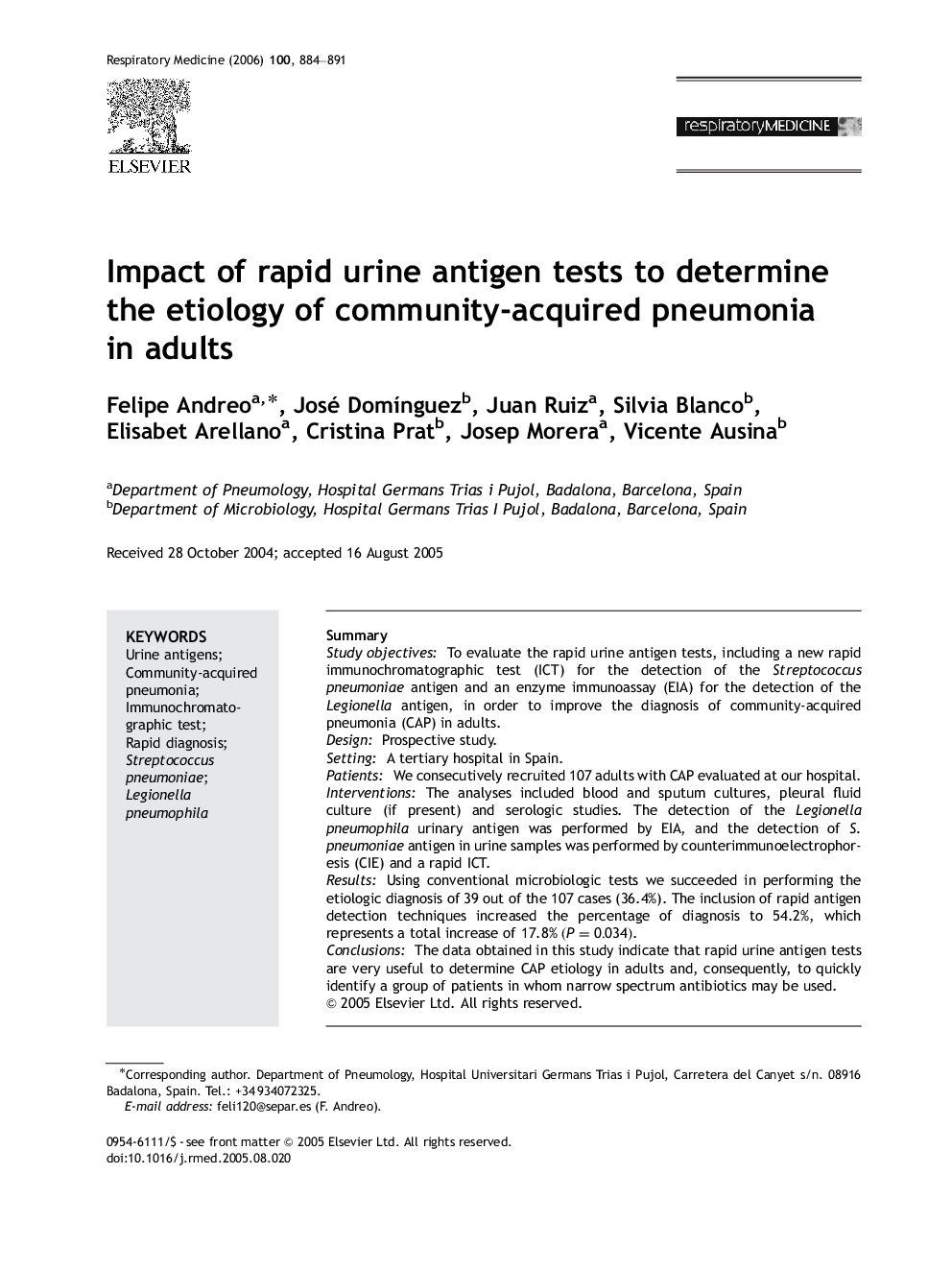| Article ID | Journal | Published Year | Pages | File Type |
|---|---|---|---|---|
| 4212370 | Respiratory Medicine | 2006 | 8 Pages |
SummaryStudy objectivesTo evaluate the rapid urine antigen tests, including a new rapid immunochromatographic test (ICT) for the detection of the Streptococcus pneumoniae antigen and an enzyme immunoassay (EIA) for the detection of the Legionella antigen, in order to improve the diagnosis of community-acquired pneumonia (CAP) in adults.DesignProspective study.SettingA tertiary hospital in Spain.PatientsWe consecutively recruited 107 adults with CAP evaluated at our hospital.InterventionsThe analyses included blood and sputum cultures, pleural fluid culture (if present) and serologic studies. The detection of the Legionella pneumophila urinary antigen was performed by EIA, and the detection of S. pneumoniae antigen in urine samples was performed by counterimmunoelectrophoresis (CIE) and a rapid ICT.ResultsUsing conventional microbiologic tests we succeeded in performing the etiologic diagnosis of 39 out of the 107 cases (36.4%). The inclusion of rapid antigen detection techniques increased the percentage of diagnosis to 54.2%, which represents a total increase of 17.8% (P=0.034)(P=0.034).ConclusionsThe data obtained in this study indicate that rapid urine antigen tests are very useful to determine CAP etiology in adults and, consequently, to quickly identify a group of patients in whom narrow spectrum antibiotics may be used.
